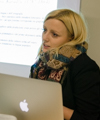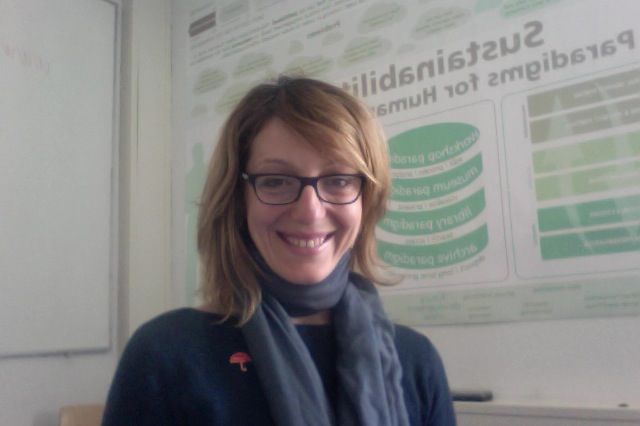Studying at the University of Verona
Here you can find information on the organisational aspects of the Programme, lecture timetables, learning activities and useful contact details for your time at the University, from enrolment to graduation.
Academic calendar
The academic calendar shows the deadlines and scheduled events that are relevant to students, teaching and technical-administrative staff of the University. Public holidays and University closures are also indicated. The academic year normally begins on 1 October each year and ends on 30 September of the following year.
Course calendar
The Academic Calendar sets out the degree programme lecture and exam timetables, as well as the relevant university closure dates..
| Period | From | To |
|---|---|---|
| Semester 1 | Oct 2, 2017 | Jan 20, 2018 |
| Semester 2 | Feb 26, 2018 | Jun 9, 2018 |
| Session | From | To |
|---|---|---|
| Winter session | Jan 22, 2018 | Feb 24, 2018 |
| Summer session | Jun 11, 2018 | Jul 28, 2018 |
| Autumn session | Aug 27, 2018 | Sep 22, 2018 |
| Session | From | To |
|---|---|---|
| LAUREE LINGUE - sessione autunnale a.a. 2016/2017 | Dec 18, 2017 | Dec 21, 2017 |
| LAUREE LINGUE - sessione invernale a.a. 2016/2017 | Mar 23, 2018 | Mar 29, 2018 |
| LAUREE LINGUE - sessione estiva | Jul 16, 2018 | Jul 21, 2018 |
| LAUREE LINGUE - sessione autunnale | Nov 12, 2018 | Nov 17, 2018 |
| LAUREE LINGUE - sessione invernale | Apr 12, 2019 | Apr 18, 2019 |
| Period | From | To |
|---|---|---|
| All Saints Day | Nov 1, 2017 | Nov 1, 2017 |
| Immaculate Conception | Dec 8, 2017 | Dec 8, 2017 |
| Christmas break | Dec 22, 2017 | Jan 7, 2018 |
| Easter break | Mar 30, 2018 | Apr 3, 2018 |
| Liberation Day | Apr 25, 2018 | Apr 25, 2018 |
| Labour Day | May 1, 2018 | May 1, 2018 |
| Patron Saint Day | May 21, 2018 | May 21, 2018 |
| Republic Day | Jun 2, 2018 | Jun 2, 2018 |
| Summer break | Aug 13, 2018 | Aug 18, 2018 |
Exam calendar
Exam dates and rounds are managed by the relevant Foreign Languages and Literatures Teaching and Student Services Unit.
To view all the exam sessions available, please use the Exam dashboard on ESSE3.
If you forgot your login details or have problems logging in, please contact the relevant IT HelpDesk, or check the login details recovery web page.
Academic staff
 alessandro.bigardi@univr.it
alessandro.bigardi@univr.it

Bradas Marija
 marija.bradas@univr.it
marija.bradas@univr.it
 paolamaria.caleffi@univr.it
paolamaria.caleffi@univr.it
 veronica.gobbato@univr.it
veronica.gobbato@univr.it
 tiziana.mancinelli@univr.it
tiziana.mancinelli@univr.it
 silvia.zollo@univr.it
silvia.zollo@univr.it
Study Plan
The Study Plan includes all modules, teaching and learning activities that each student will need to undertake during their time at the University.
Please select your Study Plan based on your enrollment year.
1° Year
| Modules | Credits | TAF | SSD |
|---|
1st foreign language2nd foreign language1st foreign literature2nd foreign literature2° Year activated in the A.Y. 2018/2019
| Modules | Credits | TAF | SSD |
|---|
1st foreign language2nd foreign language1st foreign literature2nd foreign literatureOne course to be chosen among the following3° Year activated in the A.Y. 2019/2020
| Modules | Credits | TAF | SSD |
|---|
1st foreign language2nd foreign languagePhilology of the first or second language| Modules | Credits | TAF | SSD |
|---|
1st foreign language2nd foreign language1st foreign literature2nd foreign literature| Modules | Credits | TAF | SSD |
|---|
1st foreign language2nd foreign language1st foreign literature2nd foreign literatureOne course to be chosen among the following| Modules | Credits | TAF | SSD |
|---|
1st foreign language2nd foreign languagePhilology of the first or second language| Modules | Credits | TAF | SSD |
|---|
Legend | Type of training activity (TTA)
TAF (Type of Educational Activity) All courses and activities are classified into different types of educational activities, indicated by a letter.
Russian Language 2 (2018/2019)
Teaching code
4S002921
Teacher
Coordinator
Credits
9
Also offered in courses:
- Russian Language 2 of the course Bachelor's degree in Foreign Languages and Literatures
Language
Russian
Scientific Disciplinary Sector (SSD)
L-LIN/21 - SLAVIC STUDIES
Period
II semestre dal Feb 18, 2019 al Jun 1, 2019.
Learning outcomes
On successful completion of this course, students are expected to:
− know and critically describe the morphological structures of the Russian language;
− apply their knowledge of the language in the understanding of texts on different topics, as well as in written and oral communication;
− have the language skills that correspond to the B2 level on the CEFR scale.
Program
*PROGRAMME*
THE COMPLEXITY OF THE RUSSIAN VERB SYSTEM
1. Categories, features and values
2. Aspect
2.1. Semantic category vs Grammatical category
2.2. Broad aspectual meanings
2.3. Specific meanings of the perfective aspect
2.3.1. Concrete factual meaning
2.3.2. Exemplificative meaning
2.3.3. Potential meaning
2.3.4. Global meaning
2.3.5. Disregarded expectation praesens
2.4. Specific meanings of the imperfective aspect
2.4.1. Progressive meaning
2.4.2. Durative meaning
2.4.3. Potential meaning
2.4.4. Iterative meaning
2.4.5. Generic factual meaning
3. The search for an aspectual invariant
4. Aspectual competition
4.1. Concrete factual perfective vs Generic factual imperfective
4.2. The two aspects in the imperative mood: the Politeness Theory
4.3. The two aspects in the infinitive mood: possibility vs obligation, and impossibility vs prohibition
5. Lexical aspect
5.1. Verb classes
5.2. Aspectual correlation: Maslov’s criterion
5.3. Prefixation and perfectivization
5.4. Suffixation and secondary imperfectivization
5.5. Some types of lexical aspect
5.5.1. Incohative
5.5.2. Limitative
5.5.3. Perdurative
5.5.4. Finitive
5.5.5. Cumulative
5.5.6. Saturative
6. Verbs of motion
6.1. Unprefixed verbs of motion: unidirectional vs pluridirectional
6.2. Prefixed verbs of motion and their aspectual pairs
6.2.1. Traditional grammatical explanations and their problems
6.2.2. The linguistic explanation and its advantages
6.2.3. The different meanings of prefixes with uni- and pluridirectional verbs
6.2.4. The derivation of homonymous forms (e.g. zachodit’)
7. Non-finite verb forms
7.1. The participle (active and passive, present and past)
7.1.1. The past passive participle: verbs or adjectives? one or two -n-?
7.2. The gerund (perfective and imperfective)
7.2.1. The consecutio temporum
*TEACHING METHODS*
– Slides
– Critical reading of examples and texts
– Exercises
– Group discussion both in class and on the Moodle forum
*LANGUAGE*
Russian and Italian
| Author | Title | Publishing house | Year | ISBN | Notes |
|---|---|---|---|---|---|
| Cevese C., Dobrovolskaja Ju., Magnanini E. | Grammatica russa. Manuale di teoria | Hoepli | 2018 | 978-88-203-8543-9 | |
| E. Cadorin; I. Kukushkina | I verbi russi | Hoepli | 2015 | ||
| Zaliznjak, A.; Šmelëv, A.; Mikaeljan, I. | Russkaja aspektologija. V zaščitu vidovoj pary. | Jazyki slavjanskoj kul’tury | 2015 |
Examination Methods
Written + Oral
*PREREQUISITES*
Students can take the exam ONLY IF:
– they have acquired the B2 language certificate
– they have passed the exams “Russian language 1” and “Russian literature 1”
*CONTENUTI*
Written part: open questions and exercises on all topics in the syllabus section (duration: 1.5 hours).
Oral part: correction of mistakes in the written exam and discussion on one of the topics in the syllabus.
*LANGUAGE*
Written part: exercises are in Russian.
Oral part: conversation in Russian; comments on the written exam can be made in either Russian or Italian.
*ASSESSMENT CRITERIA*
Particular attention in the final evaluation is given to:
– content accuracy and completeness
– knowledge of the subject-specific lexicon
– precision in the discussion of the topics
– critical ability in the argumentation
– originality in establishing connections among the various topics
– active participation, both in class and in the Moodle forum (for attending students)
Repeating mechanically and mnemonically the contents of the course, logical fallacies in the argumentation, insufficiently mastering the technical terminology will have a negative impact on the evaluation.
*ASSESSMENT METHODS*
– The written test is marked in thirties.
– The oral exam is marked in thirties.
– The final mark is the mean score among written test, oral exam and language certificate.
N.B.1: in order to take the oral exam, students must have passed the written test (at least 18/30).
N.B.2: students who fail the oral exam or reject its mark can repeat it only within the same session; in later sessions they will have to repeat the whole exam (written + oral).
Type D and Type F activities
To discover all the teaching activities accredited by the foreign teaching college click here
Career prospects
Module/Programme news
News for students
There you will find information, resources and services useful during your time at the University (Student’s exam record, your study plan on ESSE3, Distance Learning courses, university email account, office forms, administrative procedures, etc.). You can log into MyUnivr with your GIA login details: only in this way will you be able to receive notification of all the notices from your teachers and your secretariat via email and soon also via the Univr app.
Student login and resources
Assegnazione tutore
Attività accreditate D/F
Calendario didattico dettagliato
Cambio lingua curriculare
Competenze informatiche
Competenze linguistiche (prima e seconda lingua)
Competenze linguistiche in triennale (terza lingua CFU F)
Compilazione del piano didattico
Corso di Lingua portoghese
Erasmus+ e altre esperienze all'estero
Linguistic training CLA
Graduation
List of theses and work experience proposals
| Stage | Research area |
|---|---|
| PROGETTO MAMBRINO Stage per bibliografia | Various topics |
Stage e tirocini
Nel piano didattico della laurea triennale in Lingue e culture per l’editoria (L11 ED) è previsto un tirocinio/stage obbligatorio (CFU 6).
Le attività di stage sono finalizzate a far acquisire allo studente una conoscenza diretta in settori di particolare interesse per l’inserimento nel mondo del lavoro e per l’acquisizione di abilità professionali specifiche.
Le attività di stage sono svolte sotto la diretta responsabilità di un singolo docente presso studi professionali, enti della pubblica amministrazione, aziende accreditate dall’Ateneo veronese.
I crediti maturati in seguito ad attività di stage saranno attribuiti secondo quanto disposto nel dettaglio dal “Regolamento d’Ateneo per il riconoscimento dei crediti maturati negli stage universitari” vigente.
- Tutte le informazioni in merito agli stage per futuri studenti sono disponibili alla pagina Stage e tirocini.
- Tutte le informazioni in merito agli stage per studenti iscritti sono pubblicate in MyUnivr - come fare per - stage e tirocini.
- Tutte le informazioni in merito agli stage per le aziende sono disponili alla pagina Stage e tirocini per azienze.
Ulteriori informazioni al seguente link https://www.univr.it/it/i-nostri-servizi/gestione-carriere-studenti-lingue-e-letterature-straniere/stage-e-tirocini-lingue-e-letterature-straniere

 +39 045802 8409
+39 045802 8409






























